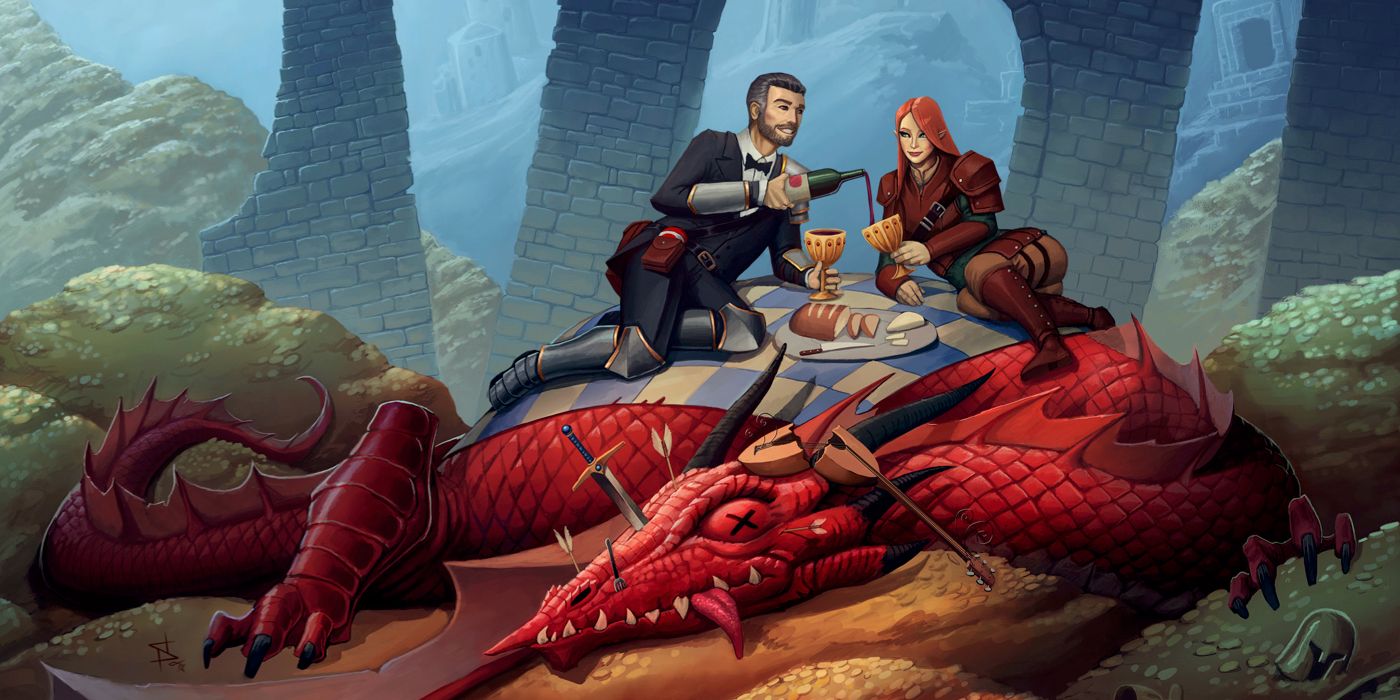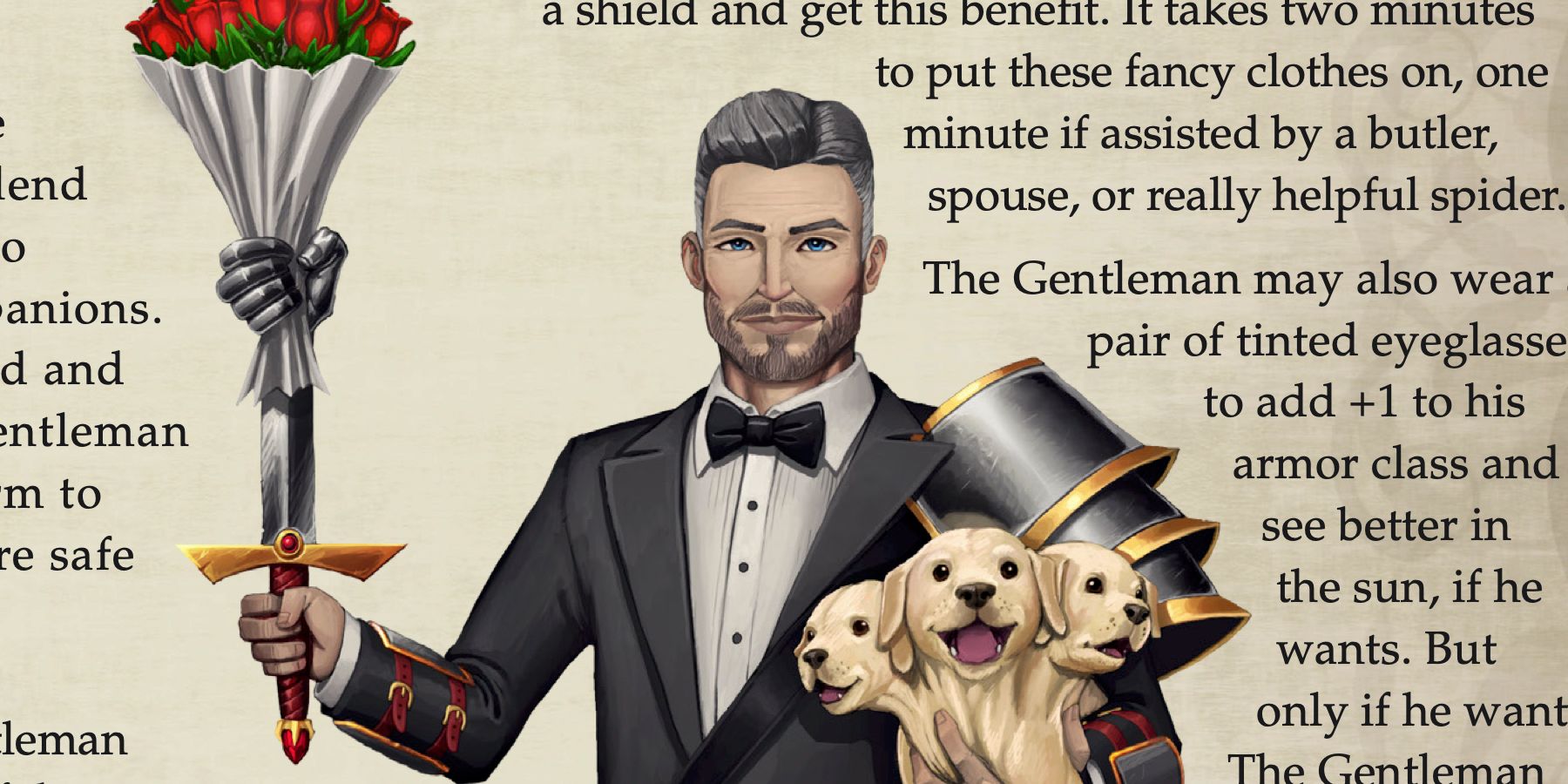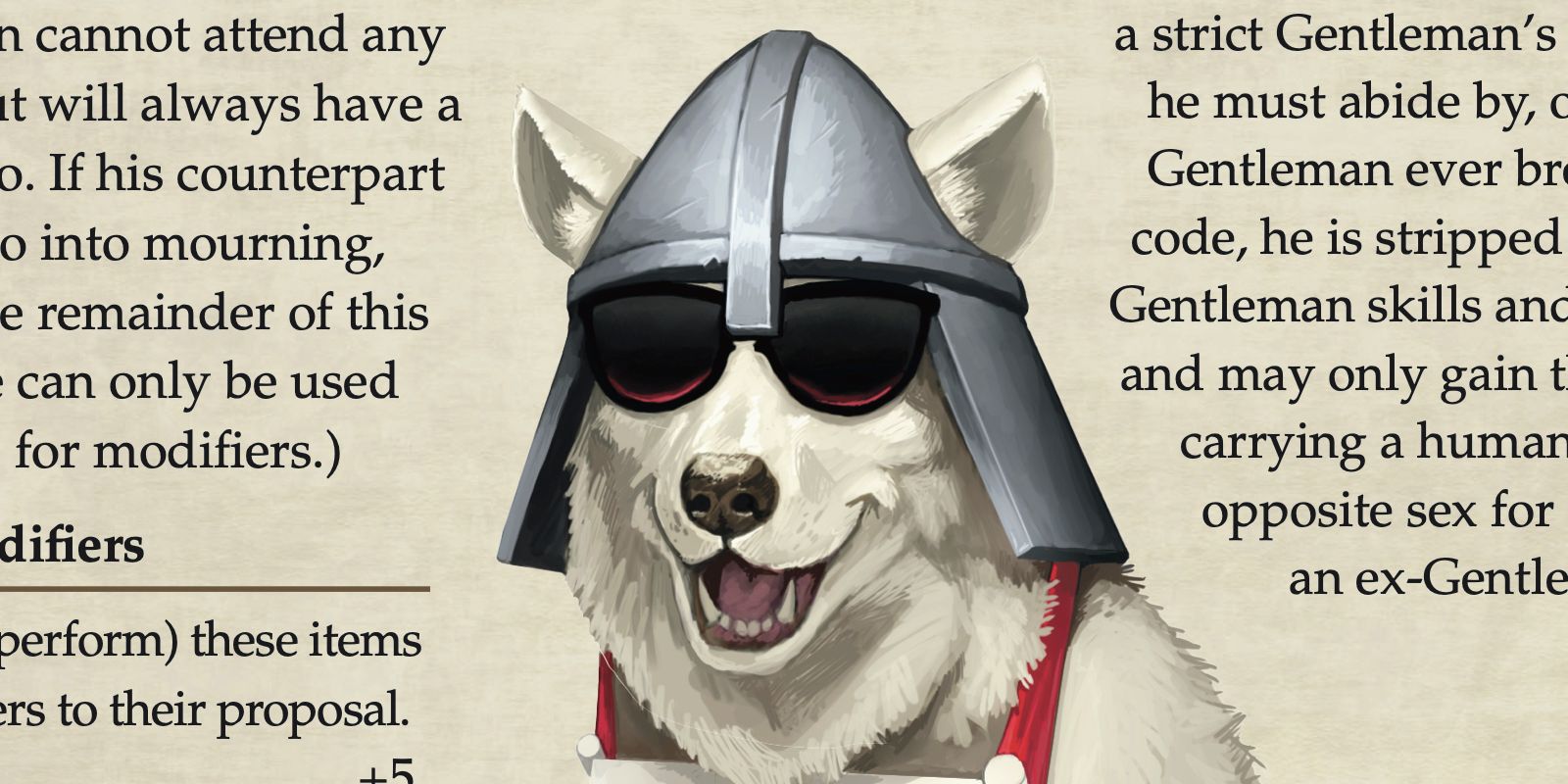In 2018, in a marketing move one might expect from the brand, Old Spice unveiled its own unofficial class for Dungeons & Dragons 3.5: the Gentleman (or Gentle-lady). For players looking for a way to embody the absurd, comically masculine Old Spice ad campaigns without racking their brains for the right official multiclass, this homebrew may be the best way to do it.
The Gentleman’s mechanical role is one of support, with martial proficiencies sprinkled in. It doesn’t rely on spellcasting to do its job, but its abilities are similar, in some ways, to that of a Bard. A Gentleman debuffs enemies, buffs allies and relies on Charisma. Outside of combat, their skill list is makes them a good "face."
All of the Gentleman’s abilities refer, in some way, to either the ethos or imagery of the Old Spice ads. Like a fancier Monk, a Gentleman uses a snazzy dress suit to base their Armor Class on their Charisma and Dexterity, and at later levels, they can switch out the dress suit for the iconic waist towel or loose red pants, which each have their own unique mechanical benefits. A Gentleman can also take damage in place of their allies, even at a distance; if they plan to do this often, their Constitution score should be decent. They also benefit from a high Initiative score, and therefore high Dexterity, since they can switch places with other party members in the Initiative -- but only if it puts the Gentleman later in the turn order. That’s a big help to the Wizard who made Dexterity their dump stat. And as always, a player can take feats to specialize their Gentleman further -- likely Weapon Finesse if they plan to be in melee often, and possibly Leadership if they want to take a plus-one along for the adventure.
A Gentleman also makes a good party financial broker, since they get a percentage bonus to sales prices. They can also provide some light healing in a pinch. In the “late game,” they can propose to and marry an NPC, adding that character to the party. Later still, their haircut grants everyone else in the party an extra level. Finally, their capstone ability effectively makes the Gentleman an invincible, incorporeal deity of random explosions.
Obviously, this class as written fits best in a game group that doesn’t take itself too seriously. Much like the Old Spice ads, the Gentleman breaks the fourth wall. It’s anachronistic (for what that’s worth in a fantasy setting), it has some abilities that are pure fluff and effectively do nothing (it acknowledges this), and it uses fairly non-specific language in the service of humor. (One ability, for instance, scales “every four levels or so.”) It even can even demand that the Dungeon Master reveal personal information, or force the player (not the player character) to make a Fortitude saving throw. For the class to function well in a more “serious” party would take some major adjustments, including cutting some features altogether.
Even in a more off-the-rails game, players might take issue with the gender-restricted or gender-specific abilities of the Gentleman class. After all, why not call the class “Gentleperson?” And why keep them from joining a dragon in “Matrimony (ex, sn, sp)”? In that case, a game group could home-rule to lift such restrictions, or amend them to include anyone the character might be romantically attracted to (though that latter option would give a stark advantage to panromantic Gentlepersons). A game group could also play the Gentleman as written, but subversively; a Gentleman could be reluctant, or so absurdly “traditional” that they baffle or astonish other characters. Playing a Gentle-lady with, say, great “Biceps (ex)” and turning traditional roles on their heads might prove fruitful, too
Overall, the Gentleman class is about being courteous, helpful, and attractive in the most over-the-top, absurd ways possible. If that absurdity fits well with your group’s play-style, and you’ve had a burning desire to play a “true to form” Terry Crews support archetype, try it out.



